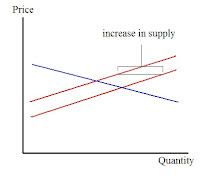Some highlights:
• What Liberaltarian Means To Me
• Where I Stand, Structurally
• Activism Theater
(Just in case people are stumbling onto my blog who don't know me.)
Truth and Action in Politics
In order from extremely amazing to moderately amazing:
 The Blank Slate -- Steven Pinker
The Blank Slate -- Steven Pinker
Discusses the implications of modern psychology for the social sciences, with an illuminating focus on political issues.
 Bowling Alone -- Robert Putnam
Bowling Alone -- Robert Putnam
A look at the decline in community involvement over the past 50 years, drawing on many aspects of modern sociology.
 Guns, Germs, and Steel -- Jared Diamond
Guns, Germs, and Steel -- Jared Diamond
A wide-ranging look at how environmental and demographic factors influenced human civilization.

Paul Krugman delivers the smackdown to dumb non-economists, and in the process provides the most entertaining presentation of economics since Frederic Bastiat's hilarious Economic Sophisms.
 The Death and Life of Great American Cities -- Jane Jacobs
The Death and Life of Great American Cities -- Jane Jacobs
 The Skeptical Environmentalist -- Bjørn Lomborg
The Skeptical Environmentalist -- Bjørn Lomborg
The optimistic truth about the environment, resource scarcity, overpopulation, and world poverty.
 How We Know What Isn't So -- Thomas Gilovich
How We Know What Isn't So -- Thomas Gilovich
The title says it all.
 Why Societies Need Dissent -- Cass Sunstein
Why Societies Need Dissent -- Cass Sunstein
An entire book about how groups screw things up.
 Hard Heads, Soft Hearts -- Alan Blinder
Hard Heads, Soft Hearts -- Alan Blinder
One of the very few popular macroeconomics books ever written. It can be hard to find macroeconomics interesting, so I recommend reading some other econ book (or two or three) before this one.

In my opinion the best of the books on global poverty. He finds the common sense middle ground between leftist Jeffrey Sachs and libertarian William Easterly, and then he adds more common sense and a lot of practical political science.
Criterion used:
1) Must broadly agree with the academic literature. This rules out most everything written by John Kenneth Galbraith (if only he wasn't a crazy eccentric!) as well as Frederic Bastiat's Economic Sophisms (if only he had started writing after the labor theory of value was abandoned!).
2) Must cover a wide subject area. This rules out excellent books like Robert Axelrod's The Evolution of Cooperation and Andrew Gelman's Rich State, Poor State, Red State, Blue State.
3) Must be easily decipherable by an intelligent layman. This rules out John Zaller's The Nature and Origins of Mass Opinion and Tullock and Buchanan's The Calculus of Consent.
4) Must be well written. Nothing bothers me more than a sentence that should be simple but instead reads like a math equation. (Yes, I'm looking at you, Friedrich Hayek.) Nothing, that is, except writers who get sidetracked by dumb irrelevant ideological issues. (Strange example: Nicholas Christakis and James Fowler talking complete nonsense about superorganisms in Connected.)
There have a number of letters in the last month about libertarian Democrats, and how voters should “beware” of these candidates.
I am both amused and frustrated by these arguments.
The authors don’t seem to understand what the word “libertarian” actually means. Libertarians, for their information, want minimal government involvement in society. This means they generally oppose government intervention in the economy. They also oppose intervention in citizens’ private lives, as well as foreign wars of aggression.
If you’ll notice, this means that, though there may be times when they agree with conservatives, there are a considerable number of issues where libertarians naturally align with the left, including marijuana, gay rights, immigration, foreign policy, civil liberties, corporate welfare, and others. In fact, there are prominent libertarians, notably Will Wilkinson, arguing that libertarians should form a permanent alliance with liberals. This alliance has been branded “liberaltarianism,” and that’s exactly what some of us in Cheshire County have set out to do.
You would expect Democrats to be enthused by this influx of support. And, indeed, most have responded this way. Unfortunately, there are some who, due to narrow-minded ignorance and rampant fear-mongering, have decided that it’s their duty to oppose libertarianism in the Democratic Party. Apparently libertarians aren’t “real” Democrats.
Is that so? Well, let’s take a look at a few of these “real” Democrats. “Real” Democrat John Lynch vetoed medical marijuana and has pledged to oppose an income tax. (“Stealth” Democrat Andrew Carroll, on the other hand, supports medical marijuana and has refused to take the income tax pledge.) “Real” Democrat Bill Butynski opposes gay marriage and medical marijuana, and has been endorsed by Rep. Tim Butterworth. (“Stealth” Democrat Thom Simmons, however, supports gay marriage and medical marijuana, and has been endorsed by the Pink Pistols, a gay rights organization.)
If there is any systematic reasoning at all behind this categorization, I cannot see it.
I have therefore decided that I am not supporting real Democrats this year. Instead, I will support thoughtful and intelligent candidates who will vote with their consciences — candidates like Chuck Weed, Stephen Lindsey, Kris Roberts, Tim Robertson, Andrew Carroll and Thom Simmons.
WILL MAY
45 Elm St.
Keene

